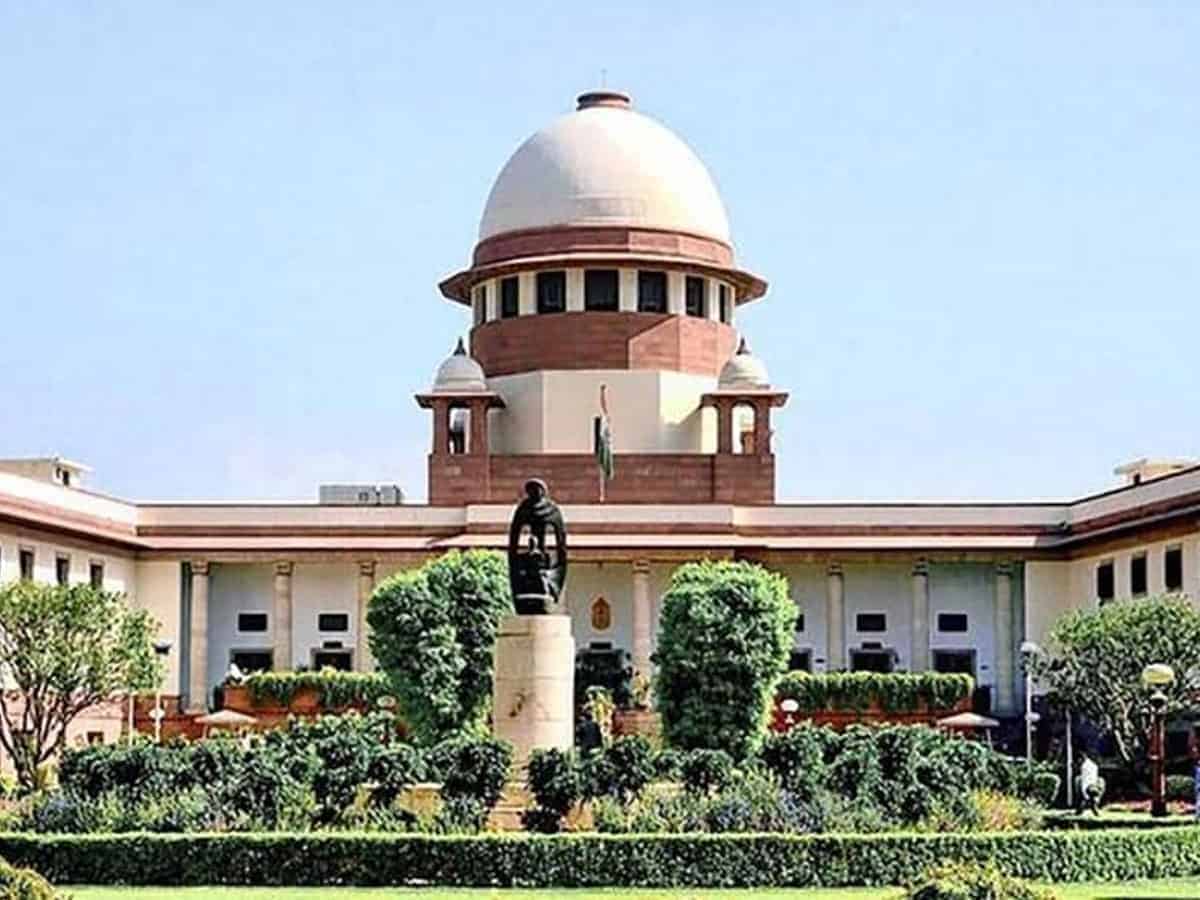
New Delhi: The Supreme Court on Friday said it would list pleas on the issue of marital rape for hearing in mid-October. The pleas raise the legal question of whether a husband enjoys immunity from prosecution for the offence of rape if he forces his wife, who is not a minor, to have sex.
A bench comprising Chief Justice D Y Chandarchud and Justices J B Pardiwala and Manoj Misra took note of the submissions of lawyer Karuna Nundy that the pleas needed to be heard.
“We are in midst of constitution bench hearings. We can list this after the constitution bench matters are wrapped up,” the bench said and asked Solicitor General Tushar Mehta and other lawyers how much time they would take in advancing their arguments.
“I will take two days. This (issue) has social ramifications,” the law officer said. A counsel for the petitioners said they would like to argue for three days.
“Then it can be listed for hearing in April next year!” the CJI quipped and later said the pleas would be listed for hearing in mid-October.
Earlier, senior advocate Indira Jaising had mentioned the plea for urgent hearing.
The constitutional validity of an exception clause of Section 375 (rape) of the Indian Penal Code (IPC) is under challenge as it exempts a husband from being prosecuted for rape for having non-consensual sexual intercourse with the spouse if she happens to be an adult.
“We have to resolve the matters concerning marital rape,” the bench said.
The CJI had said these matters are to be heard by a three-judge bench and will be listed for hearing after the five-judge constitution benches conclude hearing some listed cases.
On January 16, the top court sought the Centre’s response to the petitions pertaining to criminalisation of marital rape and the IPC provision on it.
The Centre, represented by Mehta, had said the issue has legal as well as social implications, and the government would like to file its response to the petitions.
One plea has been filed in relation to the Delhi High Court’s split verdict of May 11, 2022 on the issue.
Justices Rajiv Shakdher and C Hari Shankar had concurred on granting the petitioners a certificate of leave to appeal in the Supreme Court as the matter involved substantial questions of law which required a decision by the top court.
However, Justice Shakdher, who headed the division bench, favoured striking down the marital rape exception for being “unconstitutional” and said it would be “tragic if a married woman’s call for justice is not heard even after 162 years” since the enactment of the IPC. Justice Shankar, on the other hand, said the exception under the rape law is not “unconstitutional and was based on an intelligible differentia”.
The concept of intelligible differentia distinguishes people or things grouped together from those that are left out.
Another plea has been filed by a man against the Karnataka High Court verdict that paved the way for his prosecution for allegedly raping his wife.
The Karnataka High Court had on March 23 last year said exempting a husband from the allegations of rape and unnatural sex with his wife runs against Article 14 (equality before law) of the Constitution.
